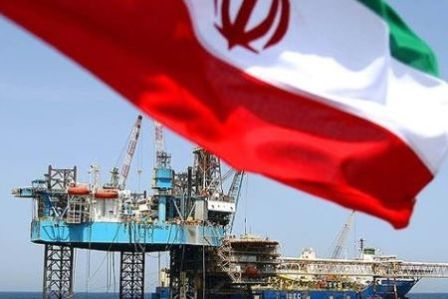Using the Private Sector to Bypass Sanctions

BM: The entry of the private sector into the oil industry can naturally be effective in neutralizing sanctions. The private sector can be effective by using special techniques, such as changing the sale process, changing names, and using registered intermediary companies in other countries. Therefore, one of the ways we can bypass sanctions is through the entry of the private sector into the oil industry.
ID: What could the effects of this measure be on Iran’s economy?
BM: Oil makes up the biggest part of Iran’s income and the people of Iran unfortunately have no, or little, share in its distribution. Under current conditions where we are trying to enforce Article 44 of the Constitution, meaning that we have turned it into a law, we should move towards privatization in all areas and the government dominance should not rule over this sector. It is natural that an unpleasant monopoly exists in this area and if the private sector enters the arena and we even form an oil stock market, it will have an impact on transparency, the elimination of rent-seeking, and reduction in corruption.
ID: Are private companies in Iran sufficiently capable of doing this job?
BM: I believe that if a clean competition exists, even if this capability is not available at the present time, it will be achieved with the passing of time. Considering the fact that the distribution of oil is to be given to the private sector, this sector can rapidly be empowered in this field. The sector of distribution does not need huge investments and companies can become active in this area by gaining the credit, participation, and cooperation of foreign companies. It will not be done overnight, but it seems that this capability can gradually be created. Imagine a child who is always economically protected by his parents. This protection cannot continue until the child becomes 100 years old. An able and clean private sector has to be strengthened. In my opinion, the reasoning that is always discussed based on the incapability of the private sector is totally incorrect. Why is the private sector so capable in developed societies, but so incapable when it comes to Iran? The reason is either that there is a problem in enforcement or in laws or that there is mistrust with regards to this sector. But this situation must be changed and we should trust the private sector.
ID: What is the precedence of the private sector entering the export and import of Iran’s crude oil?
BM: We have proposed the idea since many years ago that an oil stock market must be established, so that the private sector becomes familiar with the details of the job. But, each time, due to different reasons and measures taken by people in charge or events that are not acceptable, the enforcement of this idea has been postponed. We hope that this time this issue would be considered seriously.
ID: Some believe that this issue can lead to non-transparency, rent-seeking and corruption. How real, in your opinion, is this assessment?
BM: It is generally said that legal voids, weakness or ambiguity in laws, non-enforcement of certain laws and serious indifference of supervising bodies and the judiciary with regard to those involved in corruption, making little effort to uproot this problem and …., are important and major factors in the spread of rent-seeking. For example, trade regulations give permission to certain people to use their connections to enter the field of commerce and gain huge sums of money. Among the elements which could lead to corruption are domestic and foreign contracts, huge investments, national and construction projects, and big decision-making centers related to finance, monetary and stock markets. Of course, the assignment of public properties exclusively to certain people cannot be ignored. Furthermore, breaking the law is also an important factor in acquiring illegal wealth.
Therefore, if the laws and conditions of this task are clearly defined and clean competition exists, corruption can be prevented. As I said earlier, an unpleasant monopoly exists in the oil sector in which, if the private sector enters and an oil stock market is formed, it can be effective in transparency, elimination of rent-seeking and reduction of corruption.

